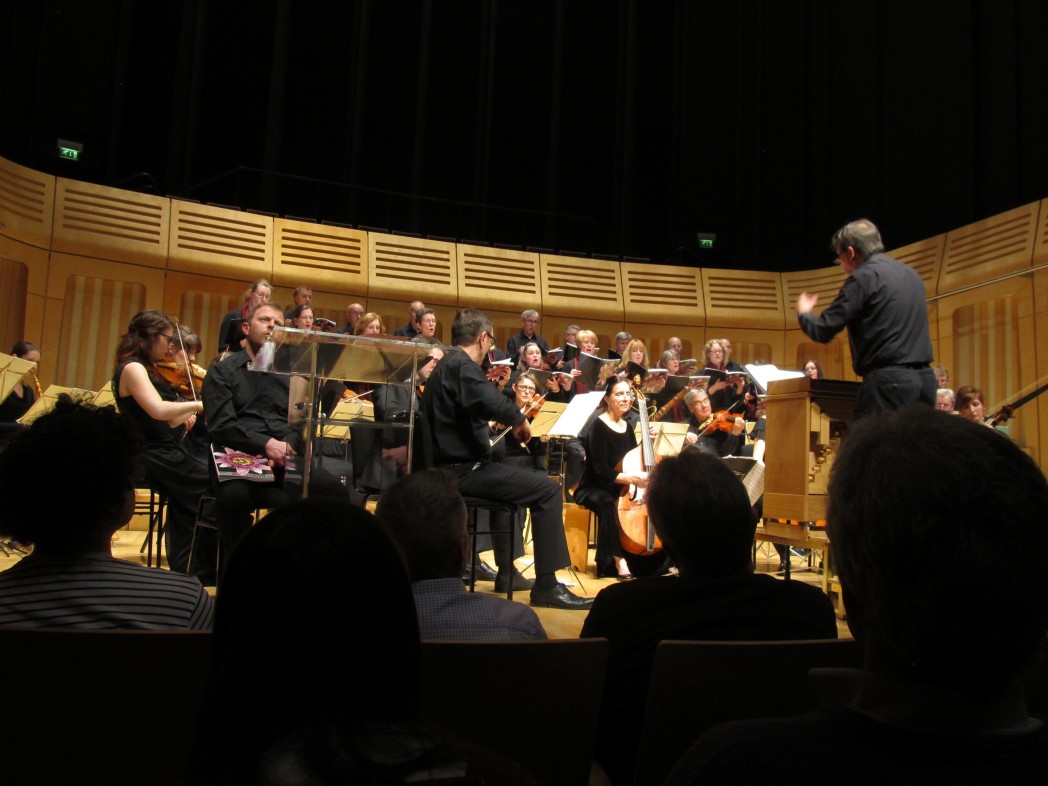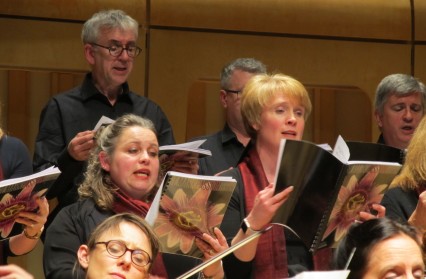Royal Welsh College of Music and Drama, Cardiff, 25 March 2016 (Good Friday)
The Welsh Camerata and the Welsh Baroque Orchestra
St Mark Passion: J.S. Bach / Andrew Wilson-Dickson
Conductor: Andrew Wilson-Dickson
Siȃn Winstanley (soprano), Catherine King (alto), Peter Wilman (tenor), Stephen Hamnett (bass)
We know that J.S. Bach wrote a St Mark Passion: there are records of performances on Good Friday in 1731 and 1744, and there is a complete libretto by Picander, who also wrote the libretto of the St Matthew Passion. But no musical score survives. There is strong evidence that Bach recycled music from elsewhere (as was common practice) for the opening and closing choruses and also for the five arias, as their words align metrically with those of other pieces. The opening and closing words, for example, exactly fit superb choruses from Cantata 198, Lass, Fürstin (originally composed for the lavish funeral of a princess). As Andrew Wilson-Dickson explained in an engaging pre-concert talk, the libretto also gives us a pretty good idea which chorales were likely to have been used – and harmonisations by Bach himself of each of these survive. What remains completely unknown is the music of the narrative or recitative sections (delivered by the Evangelist), and of the choruses which Bach used, as in his other Passions, to portray the actions and reactions of the crowd and the twelve disciples.

Andrew Wilson-Dickson has composed original music – in the style of Bach – for these missing sections, incorporating them among Bach’s own chorales and the Cantata 198 choruses and arias mentioned above, into a new reconstruction of the St Mark Passion that was performed for the first time in this Good Friday concert at the Royal Welsh College of Music and Drama. The chorus (Welsh Camerata) proved itself capable and charming from the very start, singing in tune, and with a light but warm sound and excellent German diction, throughout.
Catherine King (alto) was assured in dealing with the wide vocal range of her two arias; her upper register was liquid gold. Stephen Hamnett (bass) sang the role of Jesus with warmth and solemnity. Peter Wilman (tenor) had a giant role as the Evangelist, which he delivered with great expression and dramatic sense. Siȃn Winstanley (soprano) sang cleanly and brightly. Smaller solo parts taken by members of the choir were also well done, particularly the role of Peter, sung by Mark Bishop.
The work flowed seamlessly in the experienced hands of Wilson-Dickson, who conducted from a chamber organ. John Cheer at a second chamber organ shared the continuo playing. The Welsh Baroque Orchestra played with precision and verve in a performance which proved both impressive and delightful.
How did the piece hold up as a realisation of a lost work of J.S.Bach’s? Wilson-Dickson, who has lived and worked in Wales since 1984 as a composer, music director and teacher (including at RWCMD), describes himself as ‘a Bach pupil’ – and for the most part he was very convincing in taking on his master’s style. The recitative sections and several choruses (such as Weissage uns! – ‘Prophesy for us!’) were particularly persuasive. He used Bach’s own approach in the St Matthew Passion of surrounding Jesus’s words with a ‘halo’ of string sound (in this case violas da gamba rather than upper strings).
Overall, Wilson-Dickson’s reconstruction made for an exciting and satisfying evening. It stands up well in its own terms and is a faithful and moving presentation of St Mark’s extraordinary re-telling of the Passion story. Everyone involved should be very proud of what has been achieved.
CDs of the live concert recording will be available in due course from the Welsh Camerata and the score will be published by Canasg Music.
Image credits: Sheena Phillips











